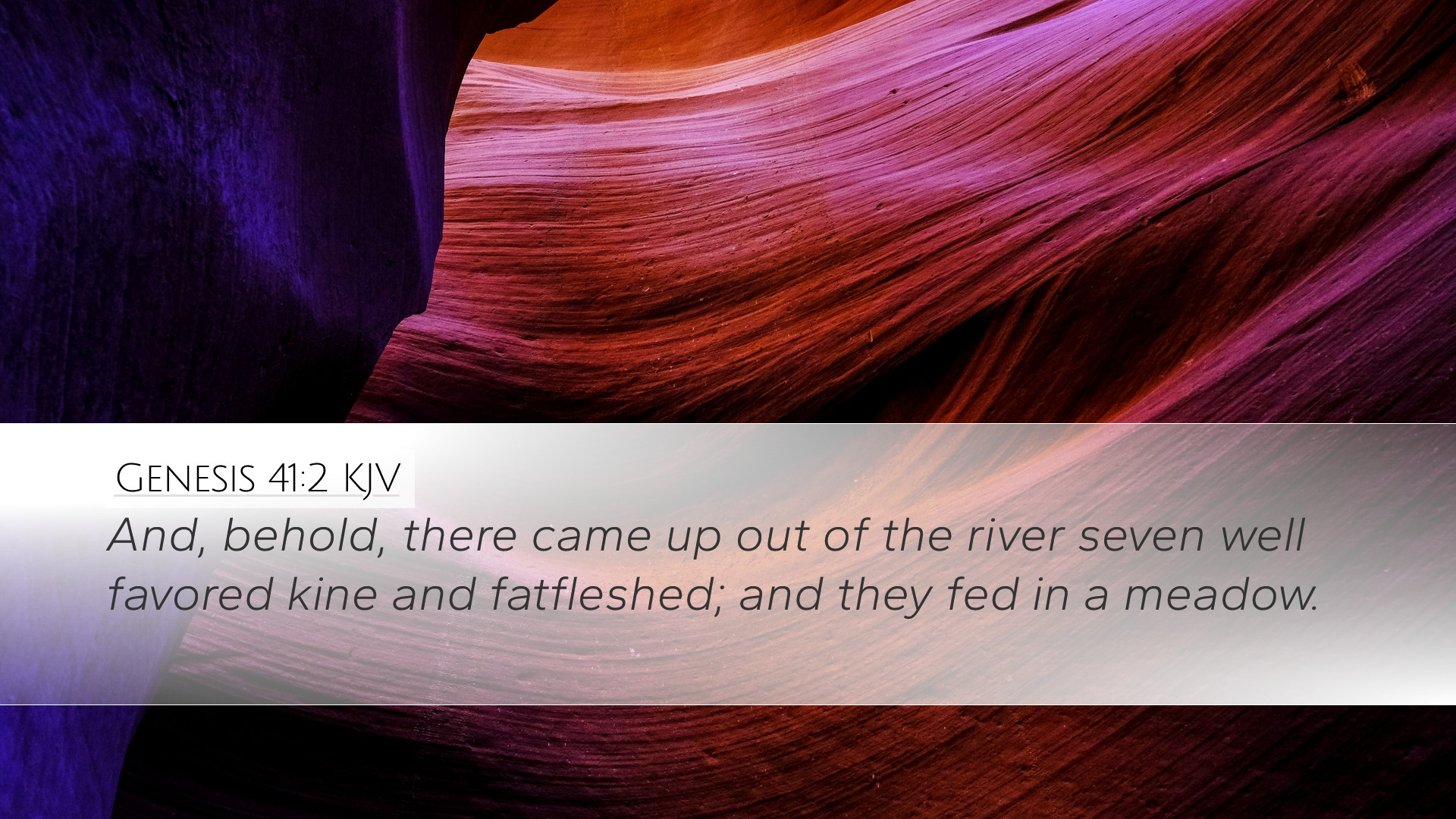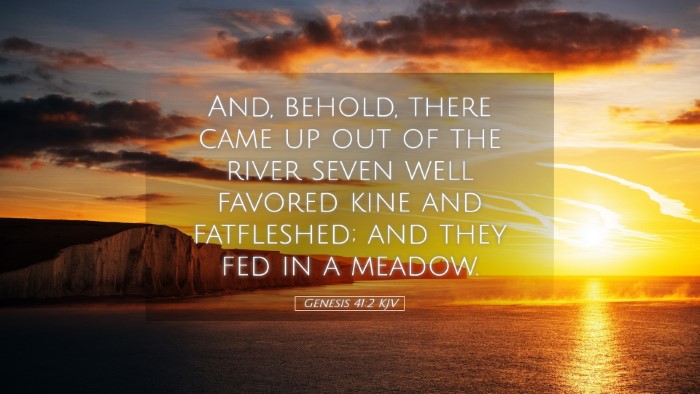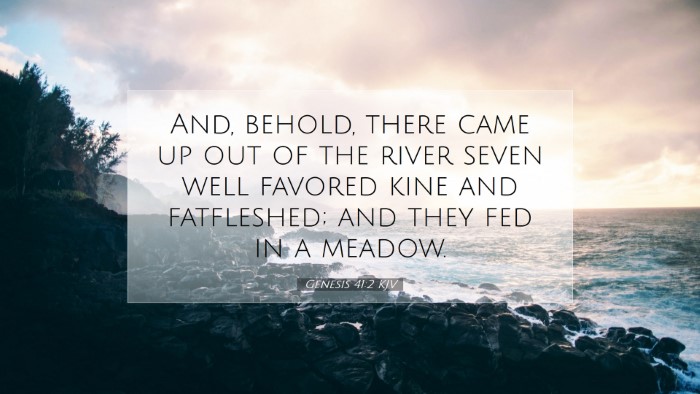Commentary on Genesis 41:2
Genesis 41:2: "And, behold, there came up out of the river seven well-favoured kine and fatfleshed; and they fed in a meadow."
Introduction
The second verse of Genesis 41 introduces a pivotal moment in the narrative of Joseph in Egypt. This verse is set within the context of Pharaoh's dreams, which foreshadow significant events related to famine and abundance. A thorough examination of this verse, drawing upon public domain commentaries, reveals layers of meaning that are crucial for understanding the themes of divine providence and the interpretation of dreams in the biblical text.
The Symbolism of the Cattle
In this verse, the seven "well-favoured kine" are emblematic of Egypt's agricultural wealth and prosperity. Cattle were a symbol of abundance in ancient societies.
- Matthew Henry: Notes that the well-favoured and fatfleshed kine represent prosperity and provide insight into the understanding of Pharaoh's impending dreams.
- Albert Barnes: Emphasizes that these cows signal not just fertility but a divine message, suggesting the coming years of plenty that precede the famine.
- Adam Clarke: Expounds that the fatness of the kine symbolizes both physical abundance and the blessings of God upon the land, preparing for the great events that follow.
The Setting: The Nile River
The reference to the "river" indicates the Nile, the lifeblood of Egypt, pivotal to its agricultural success.
- Matthew Henry: Highlights the importance of the Nile in the prosperity of Egypt, linking the health of the nation to the dreams that Pharaoh is about to experience.
- Albert Barnes: Suggests that Pharaoh's vision of the cattle coming from the river emphasizes a divine connection to this source of life, indicating that God is actively involved in the affairs of Egypt.
- Adam Clarke: Connects the Nile and fertility with the theme of divine provision, suggesting that even the land contributes to the grander narrative of God's sovereignty.
Context of Divine Revelation
This verse occurs at a significant juncture where God is revealing His plans to a foreign ruler, thus underlining the sovereignty of God over all nations.
- Matthew Henry: Comments that God may choose to communicate His will to the great leaders of the world, showing that His providence extends beyond Israel.
- Albert Barnes: Points out that the ability to interpret this dream will elevate Joseph's position, illustrating how God orchestrates events for the fulfillment of His purposes.
- Adam Clarke: Expounds that this dream and its subsequent interpretation serve as a bridge between Joseph's past sufferings and his future glory, exemplifying God's timing.
The Role of Dreams in Scripture
This verse marks the beginning of the theme of dreams which will play a crucial role in Joseph's story.
- Matthew Henry: Notes that God uses dreams as a medium to convey His messages and intentions, thereby controlling the destiny of nations through the interpretations given to His servants.
- Albert Barnes: Highlights the significance of divinely-given insight and wisdom, stressing that overcoming trials often comes through the revelation of God's plans.
- Adam Clarke: Urges an understanding that dreams are often vehicles for divine communication, underlining the importance of spiritual discernment in recognizing God's voice.
Applications for Modern Readers
The insights from Genesis 41:2 offer multiple applications for pastors, theologians, students, and scholars today.
- Insight into Providence: Recognizing God's hand in both abundance and scarcity is vital for understanding how He works in our lives and societies.
- Role of Interpretation: Understanding the need for wise counsel and interpretation in our spiritual journeys mirrors Joseph's experience.
- Call to Awareness: Just as Pharaoh needed to heed the warning in his dream, modern believers are called to stay attentive to God's revelations in their lives.
Conclusion
Genesis 41:2 serves as a crucial piece in the broader narrative of Joseph’s life. By exploring the layers of meaning within this verse through the insights of respected commentators, we see how God’s providence intertwines with human history. The events that unfold from this point forward illustrate the themes of divine revelation, the necessity of preparedness, and the ultimate triumph of faith amidst trials. For those engaged in pastoral ministry, theology, and biblical scholarship, this verse not only reflects on God's sovereignty but also serves as a reminder of the power and influence of dreams, both in Joseph's context and our own spiritual journeys.


